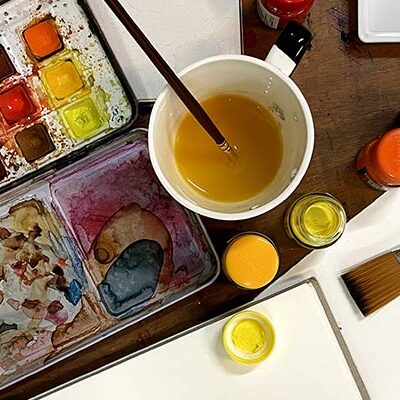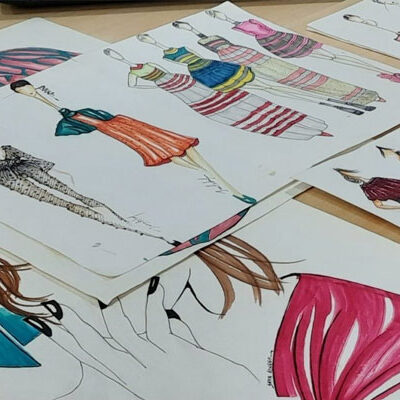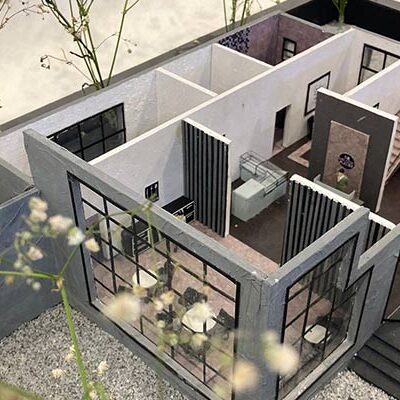B.Des in Product Design
Embark on a transformative journey into the world of design with our Bachelor of Design in Product Design Program, also known as B.Design or B.Des in Product Design. Our comprehensive curriculum is meticulously crafted to nurture aspiring Product Designers, providing a dynamic blend of theoretical knowledge and hands-on experience. Through courses tailored to encompass design principles, materials science, prototyping, CAD modelling, and user-centered design, students develop the skills necessary to innovate and create impactful products. Whether crafting consumer goods, technological innovations, or sustainable solutions, our program equips students with the tools to bring their ideas to life. With a focus on real-world applications and industry-relevant projects, graduates emerge as versatile Product Designers poised to make meaningful contributions in a rapidly evolving global market. Join us and unleash your creativity to shape the future as a visionary Product Designer.

Key Learning Areas
1. Design Fundamentals: Develop a basic understanding of design principles, colour theory, and composition.
2. User-Centered Design: Recognize the value of user experience and understand how to create products that fulfil real-world requirements.
3. Prototyping and Modelling: Learn how to build prototypes and models with a variety of materials and techniques.
4. Digital Design Tools: Learn about industry-standard tools for 3D modelling, rendering, and animation.
5. Material Science: Learn about the qualities of various materials and their applicability for different design applications.
6. Design Research: Conduct extensive research to help guide the design process and make educated judgements.
7. Industry Collaboration: Collaborate with industry professionals and work on real-world projects to obtain valuable experience.
8. Human-Centered Innovation: Learn about advanced principles in human-centered design thinking, with a focus on innovation and the development of products that not only meet user demands but also foresee and handle future difficulties.
9. Design Ethics: Discuss ethical design aspects, including the social and environmental consequences of goods. Learn how to apply ethical ideas into your design practice to get a more responsible and sustainable outcome.
Subjects of the Curriculum
All specializations will cover the study of technical & manual skills of sketching, history, and understanding of trends in order to predict a future trend. Along with this, Craft Study Documentation and Relative Study Program (RSP) will enable our students to understand the heritage crafts of India to enhance their capability of applying it in their contemporary work to produce innovative designs.
- History of Product Design
- Elements of Product Design
- Colour, Material, Finish (CMF)
- Software Study (CAD I II & III; Blender; Rhinoceros 3D: Rhino)
Specializations
- Defense Design (technologically advanced design to enhance the defense capability of product, whether it be a garment, weapon, accessory, etc. to strengthen the military personnel, especially in remote areas)
- Furniture Design
- Jewelry Design (understanding history, differences, transition to modern jewelry making, process & implementation of a design to final production)
- Packaging Design (1st aspect that a potential consumer observes; highlights the attributes of product; ease of accessibility; safe keeping)
- Toy & Game Design
- Transportation Design (mobility solutions & ergonomics, from designing the interior & exterior of different modes of transport, to accessories and services for the same)
- Space Design (experiential design, finding comfort and a pleasant experience with the product in relation with surrounding space)
- System Design (Macro & Micro segregation, studying the problem, research, planning, execution, and final production)
- Service Design (experiential design, catering to increase a content & loyal base of clientele whether in terms of emotional or monetary value; service can be tangible or an abstract feeling)
- Form & Material (Understanding structure & volume; Relation b/w form & material; 2D, 3D form exploration in any material; effect of a form on a material and vice versa)
- Form & Emotion (Understanding emotional connection, mood, nostalgia, aesthetics with form of a product; Relation b/w form & emotion; effect of a form with an emotion and vice versa)
- Form & Culture (Understand cultural ideologies, shifts with time, usage, region, diversity in relation with the form & size of a product; effect of a culture on a form and vice versa)
- Trend Study
- Craft Documentation
- Related Study Program
- Portfolio Development

Course Structure
- Imparting in-depth skills on tackling complex difficulties, exploring innovative and practical solutions.
- Enhancing your ability to understand the world, to get a better awareness of how things work and how you design can improve their competence.
- Detailed exploration of the multiple industries and sectors as it deals with the everyday needs of human wants & necessities.
- Cultivating their critical thinking and problem-solving skills needed for any creation.
- Advanced technological know-how in a rapidly growing civilization.
- Cultivating entrepreneurial & leadership skills through comprehensive market study to successfully pitch your designs.
Career Paths
- Product Development
- Sustainable Product Development
- Furniture Designer
- Industrial Designer
- Toy Designer
- Jewelry Designer
- Prototype Designer
- 3D Designer
- UX Designer
- Manufacturing
- Visual Merchandiser (product showcase, branding, props, etc.)
- Innovator
- Researcher
- Consultant
- Product Graphics
- Freelance or Entrepreneur




